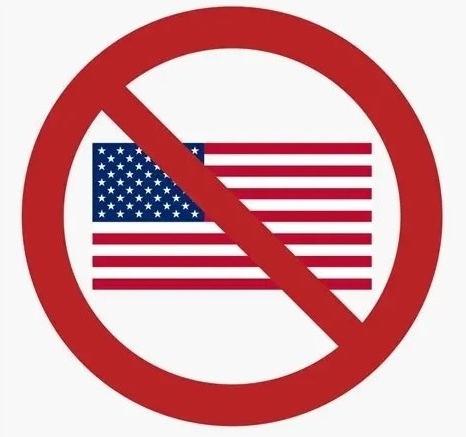Not exactly “rare” as such, though certainly not particularly common, I do think this one qualifies instead as “weird”.

Not exactly “rare” as such, though certainly not particularly common, I do think this one qualifies instead as “weird”.



My boss is pretty decent. He gets dumb ideas (like we all do), but he recognizes when they fail and doesn’t try to force them for face-saving. It’s because of that that we survived the COVID-19 disasater and the pivot away from American clients (my initiative) without disappearing. He doesn’t appear to have the usual ego of a businessman.
… Really? Please explain.
It’s not “Distance Raptor” or “Time Raptor” or even “Veloci Raptor”. It’s Distanceraptor. All one word. Or Timeraptor or Velociraptor.
I mean otherwise it would be:
Timeraptor
And that leaves us with:
Tm
Spoke too soon, I see. 🤣
And right away men jump in. Because the poor little dears can’t help themselves: they simply MUST talk when one of those rare “thought” things cross what passes for their mind.
Even just going with the makeup thing: they’re pure contrarians on that point. If they see someone with makeup they prefer women without it. If they see someone without makeup they prefer “a bit of” makeup.
Basically the whole makeup thing is purest gaslighting.


My boss tried to get everybody to use LLMbeciles for work. He was taken in by the fakery and set up a commercial OpenAI account.
I refused to use it. Ever. Like to the point that I never even collected my ID and password.
Others used it, but it was, as always, a time-waster where it looked like they were making gains at the start, only to get bogged down when important details entered the picture. So I quietly got my work done while others wrestled with AI. Then by the end of six weeks nobody was using it and my boss quietly shut down the account.


They actually believe their own press and think their “reasoning” models say anything meaningful when they “explain” their “reasoning”?
Wow! I could be a top AI researcher too and I don’t even know how to begin programming a computer!


Not me. The Democrats are not a whole lot better. I mean make no mistake they’re better than the Republicans … but not by as much as they should be.
I was unaware that I have to justify a preference. Silly me.
It depends on the book.
If it’s a book I will be cherishing and valuing, paper. If it’s a book I’m just going to read and toss, or if it’s a book I’m going to use for reference purposes, ebook.


Politics.
There was a time when I thought the system could be changed from within. That the solution to society’s troubles was to get the right candidate running and elected.
Years of constant disillusionment have led me to believe the direct opposite: that the mistake was getting involved in partisanship at all. Now my politics are individual and issues-driven, not related to political parties and processes.


Is this necessarily a bad thing?
Yes.
Yes it is.
Being a poseur has always been a bad thing and always will be a bad thing.


Those ridiculous, unserious human (presumably) beings?
They probably honestly didn’t think it was a threat. It is a common delusion in the USA that everybody wants to be American.


I’m sure the boycott will soften somewhat after Trump leaves (presuming he isn’t made President for Life and heralding a new era in American governance) because people have short memories and will forget that almost all American officials at every level were either directly working for his platform or just sitting ineffectually at the side pretending to do anything but not really stopping it.
But it will only soften. It will not be over. Not for most Canadians alive today. The USA poisoned its brand but good and by the time Trump has stopped raging like a bull in a china shop, Canadians will have found new favourite brands and suppliers and such and American brands will be dead anyway.
Because once I find something I like, why would I go back just because the old brand says “but we’ve chaaaaaaaaaaaaaaaaaaaaaaaaaanged!”


It seems that Hollywood goes out of its way to actively undermine female characters in superhero movies. This dates back to 1978 where Christopher Reeve gets huge amounts of money (by the standards of the time: $55 million) to be Superman, complete with the simpering “help me, Superman!” Lois Lane. But six years later, in 1984, Supergirl gets only $35 million and some of the worst writing in movie history. The subsequent (obvious!) failure is then used as an excuse to say “the public doesn’t want women superheroes”, an attitude that’s held to this day.
And the pattern repeats over and over again. Off the top of my head in no particular order: Elektra and Black Widow, some of the best and most iconic female characters in comics (though both are drawn to the male gaze, natch) get turned lame in their solo films. Wonder Woman does well, despite the crap writing in the third act, so it is immediately undermined by the release of WW 1984 because “nobody wants a woman superhero”. (And do I even have to mention Catwoman?) Captain Marvel got a huge budget, but was then so badly marketed that people were whining about a “girl power wins all!” theme that wasn’t even in the film! Because we can’t have a powerful female lead. Only supporting female character superheroes.
There have been four big-budget, female-led superhero movies in the past 15 years: Wonder Woman, Wonder Woman 1984, Captain Marvel, and Black Widow. Wonder Woman was good (minus the bad third act). Its follow-up was just god-awful with one of the creepiest sexual assault storylines played as “romantic” and a pretty active undermining of the lead character in the process. Captain Marvel was … an MCU film, so fairly generic story that was clearly written after the SFX sequences were designed (read: really kind of lacklustre), and was marketed in such a way as to be an active turn-off for the Marvel fan base. Black Widow was … again, it was an MCU film so the story was written after the SFX were designed and it showed again in a lacklustre story that despite this time being marketed properly still led to underperformance.
In that same time frame there were about 25 big-budget superhero movies made with male leads. The male-led superhero movies mostly (aside from Captain Marvel) got larger budgets (Wonder Woman got about $100 million while Superman v. Batman, an absolute stinker of a film, got $200 million), more marketing, better marketing (coughCaptain Marvelcough), and in general a whole lot more studio support.
So it’s utterly unsurprising that Yet Another Superman Movie got bad female representation. It’s par for the studio course.
I occasionally get the urge to open a side hustle. There’s a profound problem, however.
I’m lazy.
😅


You mean what we called LUGs when I was in school?
Possibly around the 275 price point, more likely at the 250, and almost certainly before 200.
If those numbers keep going down, he’ll be facing margin calls and a death spiral.